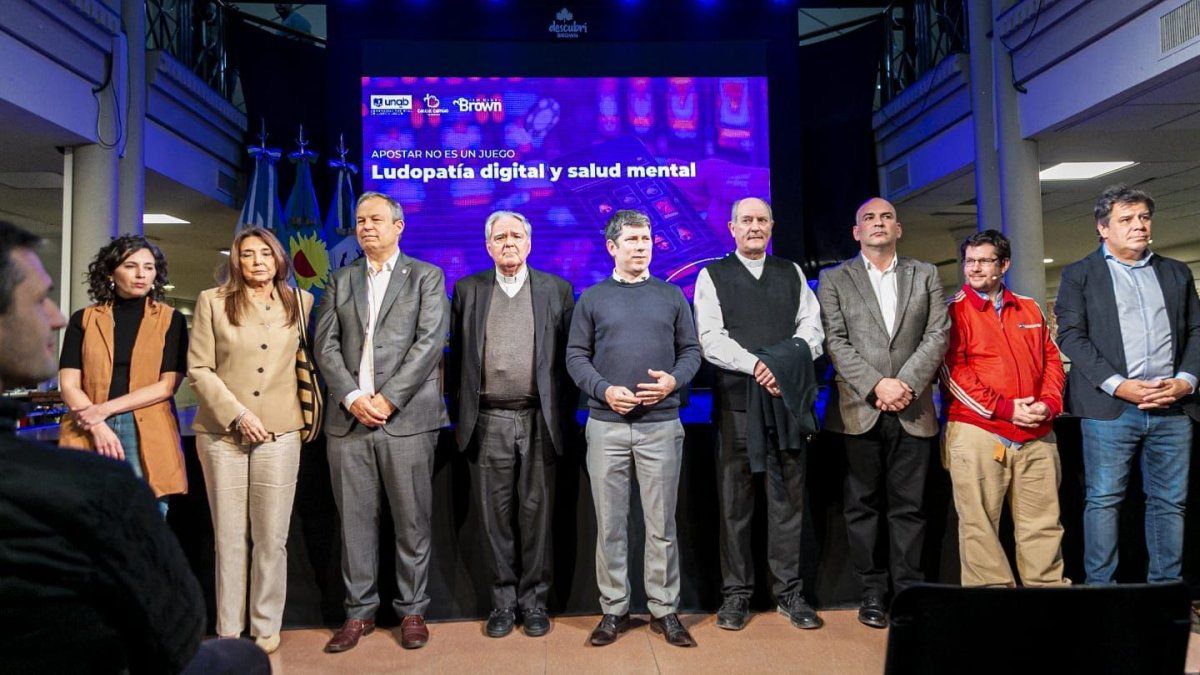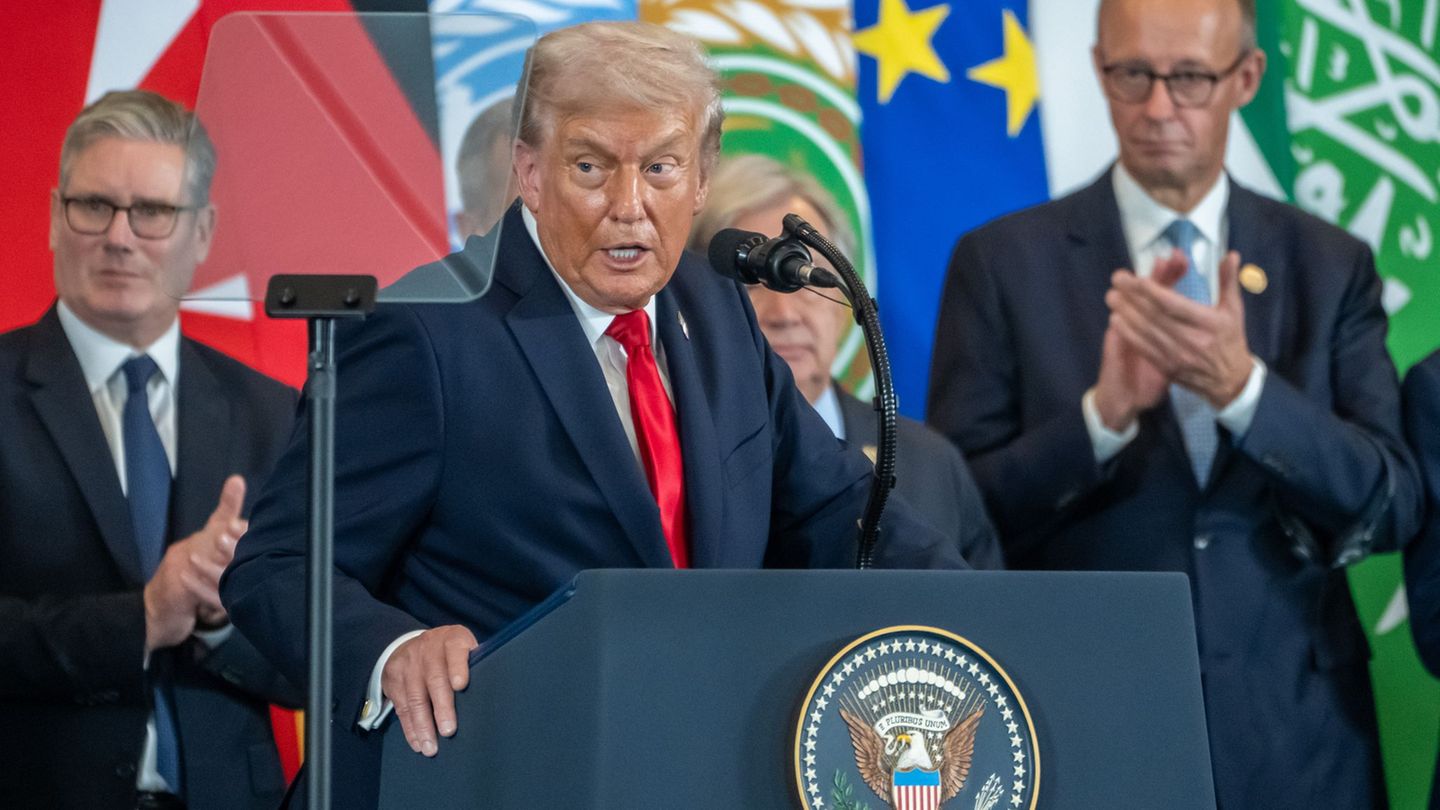A multitudinous talk open to the community in which institutions and addiction specialists participated was held at the Casa de la Cultura in Almirante Brown within the framework of the Comprehensive Public Good Program for the Prevention of Digital Gambling Addiction to address and raise awareness of this problem that is being carried out in that municipality.
With the aim of finding comprehensive and community solutions to the problem that increasingly affects young people, representatives from the Municipality of Alte Brown, the Guillermo Brown National University (UNAB), the Church, NGOs, the Red Cross, magistrates, legislators, intermediary entities, mayors of the region, representatives of the educational and health system together with security forces participated, who discussed strategies to combat Digital Gambling Addiction.
The mayor of Almirante Brown, Mariano Cascallaresstressed the importance of being able to address the problem of gambling addiction in a comprehensive manner, since more and more young people are participating in activities of this type.“We are going to work collectively, with the goal of enabling the community to develop and for each person, from their place, to know how to address, accompany and help so that this scourge does not affect more people.”
Meanwhile, Domenichini highlighted the commitment and the great call from society to address digital well-being and the scourge suffered not only by children and adolescents in the region.
From the meeting “Gambling is not a game, Digital Gambling Addiction and Mental Health“, organized by the Brown Commune in conjunction with UNAB and the Causa Común Foundation, was attended by the municipal mayor, Mariano Cascallares, together with the rector of the High House of Studies, Pablo Domenichini and the president of the local Deliberative Council, Nicolás Jawtuschenko. Also present were the president of the Argentine Episcopal Conference, Monsignor Oscar Vicente Ojea; the Bishop of the Diocese of Lomas de Zamora, Monsignor Jorge Lugones; the National Defender of the Rights of Girls, Boys and Adolescents, Marisa Graham, as well as, among others, heads of municipalities from neighboring districts.
The neuroscientist and creator of the Institute of Cognitive Neurology (INECO), gave a talk during the day. Facundo Manes; the priest Carlos Francisco Oliveroa specialist in addiction treatment; and the director of the Digital Wellbeing Consulting firm specializing in digital citizenship, Lucia Fainbom.
For his part, Monsignor Oscar Ojea and Monsignor Jorge Lugones They supported the initiative and the work being done for a “community salvation experience.” A message that was supported by Marisa Graham.
At the end of the presentation, the speakers took the floor and also emphasized the importance of addressing digital gambling addiction from all areas of the community.
A coordinated effort to attack the game
In this sense, the priest Olivero said that as a society we must understand “where we have to go and where to stop” to face problems whose complexity requires strategies. He referred to technology and financial capitalism that encourage consumption, in this case for online betting, and the need to return to the culture of meeting through relationships.
Fainbom indicated that public policies and a State that supports children are needed to confront this scourge. She also mentioned the absence of care, the lack of support, advice, individualism and loneliness of children who experience a crisis of dissatisfaction in front of screens. The specialist also highlighted the importance of relationships and dialogue.
Finally, Manes explained that addiction “is a disease like hepatitis or a heart attack or any other medical disease,” and argued that the solution “is not just a law that must be passed, fighting interests, which must be done, but as a society. If we are a society, we have to face the causes that have to do with poverty, it has to do with education, it has to do with social inequality, it has to do with mental health.”
On the other hand, the neuroscientist reaffirmed that “Mental health is a very important issue. So is education, which is not a phrase, a law, essential education, that is a slogan, it is really investing in education, it is fighting inequality, understanding poverty, it is realizing that in the economy of the 21st century it is knowledge, that countries that do not invest in their people do not prosper.”
“Note that the solution is social, it is political, it is about prioritizing,” he continued and concluded: “We are actors because we are building a community, we are talking about the issue, we are all here saying what can I do about this scourge. It is not about criminalizing but, if we are a society, we must have a human vision, change the collective mentality.”
The Secretary General of the Government of the Province of Buenos Aires, Agustina Vila, also participated in the talk; the Mayor of San Vicente, Nicholas Mantegazza and his counterpart from Florencio Varela, Andrés Watson; the head of the School Council, Ezequiel Mars, and the Secretary of Extension and Welfare of UNAB, Ignacio Jawtuschenko; in addition to provincial and national legislators, municipal executive authorities, councillors and school counsellors, inspectors of the educational system, teachers; representatives of the judiciary, of intermediary entities, of the Red Cross, of hospitals and clinics of the district, of the Joint Commission of the Planned Industrial Sector of Almirante Brown and of the Industrial Union; war veterans, representatives of Churches of different faiths and of the CGT, and neighbours.
Source: Ambito
I am an author and journalist who has worked in the entertainment industry for over a decade. I currently work as a news editor at a major news website, and my focus is on covering the latest trends in entertainment. I also write occasional pieces for other outlets, and have authored two books about the entertainment industry.




